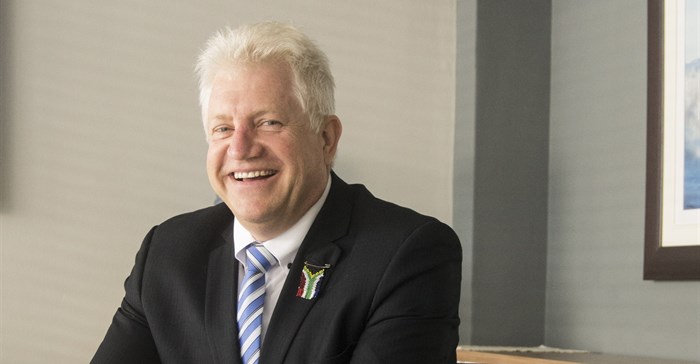
At the moment on Winde’s desk are the drought issues, funding issues, and land reform. His department is also doing a lot of work on skills in the artisan space in the Western Cape and has found out some interesting facts.
“The average age of an artisan in our province is 55 years old,” Winde says. “This means that if you are a young trained artisan, then in 10 years’ time you can name your price. The same goes for plumbers, electricians, and welders who are going to start earning more than doctors – that is what happens in the system of supply and demand.”
“In agriculture, the average age of a farmer in this province is 65 years old. It is a big problem. We need more and more young people coming into agriculture. So the big task now is finding ways to make agriculture attractive and instead of seeing the number of farmers diminishing (not only in this country but across the world in agriculture,) we need to start finding ways that young people can see a career.”
Winde feels that technology is the space to make agriculture cool. “We see disrupters at the moment in transport, food, and tourism. Disruptors such as Uber, Airbnb, etc. but what are the agricultural disrupters? We do see some cool stuff happening - we can tell you what the moisture content is via satellite, even your biomass. We can tell you from a drone how many sheep you have, whether the fence has got a hole in it, and we can tell you whether a spout in you irrigation nozzle is not working properly.”
This is something that would pique the interest of a young inspired farmer but it is still in development. But Winde says once it gets to that point, he wants to hear young people saying, “I want to be a farmer.”
One of the big risks Winde also pointed out in the Western Cape and South African agriculture sector is land reform. “If we don't fix this it is something that can make us non-competitive,” Winde says. “And at the moment I think we are not competitive because of the lack of redress and the lack of creating fair opportunity within agriculture.”
“So we have to become very creative to bring the market and the private sector players into this sector. We are mapping where the agricultural land reform is in the province, but even though my mandate is the Western Cape if we can find a solution, it becomes a solution for South Africa.
Lately, the whole world is looking at Africa slightly differently. Africa is the fastest growing continent and Winde feels the continent is going to be the food security continent for the world.
“We need to able to set those rules, and although I am just a provincial player in a country, on a continent at least if I start saying these things then it starts to push those levers. I have some important people saying they want to come on board for funding, so we're starting to pull this together and hopefully we can get a couple of leaders - global leaders, political leaders or business leaders – to also buy into Africa.”
“We need to lay down the rules and understand that, long term, we need to actually do things and make some serious decisions that have implication across the continent.”